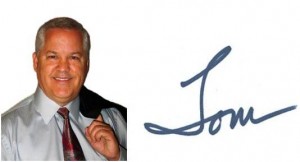 Gather a group of competitive intelligence people together and commonly you will hear the same sorts of issues. One issue is that many competitive intelligence customers do not understand the value of CI. Another common topic is how to ensure that competitive intelligence people are properly involved in decision-making. Occasionally, the discussion turns to picking the best tool or technique for an organization. Sometimes we talk about the economic conditions (i.e., how many jobs have been affected) for competitive intelligence staffs. These are all good issues but the most impactful problem is something else.
Gather a group of competitive intelligence people together and commonly you will hear the same sorts of issues. One issue is that many competitive intelligence customers do not understand the value of CI. Another common topic is how to ensure that competitive intelligence people are properly involved in decision-making. Occasionally, the discussion turns to picking the best tool or technique for an organization. Sometimes we talk about the economic conditions (i.e., how many jobs have been affected) for competitive intelligence staffs. These are all good issues but the most impactful problem is something else.
The most common issue is how to connect with senior management effectively.
This topic came up at the recent SCIP Conference in Washington, DC. In one session, everyone around a table shared their challenges about making the case for competitive intelligence to a prospective sponsor. One person explained that they were due to present such a case in about a month to a senior manager. Understandably, this important meeting caused much stress. What information should be presented? What splendid arguments should be assembled to convince the reluctant or uninformed manager? What presentation style was most appropriate? In short, what was the best approach to gain ongoing support for competitive intelligence from this senior manager so that the competitive intelligence person’s assignment and job was safe (at least, temporarily)?
There were many good suggestions bandied about.
Admittedly, it is hard for outsiders to know the right answer for another organization without more background than we could get in a short conversation. Still, one guiding principle emerged from the discussion.
Namely, the first, best competitive intelligence project executed should be about the senior management sponsor.
Why? Because, when this project is done effectively, it will have the most personal impact on the manager. It will demonstrate the competitive intelligence professional’s skills on a “captive” subject. Moreover, it will position the CI person appropriately to get the next assignment. That is, to help with a problem that is important to the senior manager.
There are seven straightforward goals of the project. You will want to understand better:
- The senior manager’s decision-making style and habits (i.e., how they evaluate information and act)
- Pending decisions that might be affected by CI (i.e., where they need help immediately)
- The manager’s success criteria (i.e., how is their performance measured)
- Their current information sources (i.e., what data they have been using)
- The significant politics (i.e., what relationships constraint or enable them)
- Their business priorities (i.e., what they and their organization is expected to accomplish)
- A history of decisions and results (i.e., how does their past affect the present)
Accept for a moment that these are worthy goals. What value would be demonstrated to the senior manager if you knew this information with reasonable certainty? My guess is that he or she would be impressed and more likely to listen to similar information about the competitive environment from you.
Now, assume that you are missing some of this information when you approach the senior manager. Does it seem professional to miss information about the senior manager when that directly affects your job? Would you be more likely to gather and interpret information better about the external environment if you could not assemble information successfully about the internal environment? The answers seem obvious.
How do approach the meeting?
- Think of it as a test of your competitive intelligence skills.
- Formulate it as a project with specific deliverables.
- Understand that a “passing grade” for this project makes future support much more likely.
- Present the findings and recommendations with authority.
- Ask specifically for feedback about your recommendations.
You can be quite successful when you have the sponsor’s support. That is why the first, best competitive intelligence project is aimed at getting it. If you skip this project and jump to another task, you may wonder why the support is inconsistent or fading. Don’t make that mistake.


no comment until now